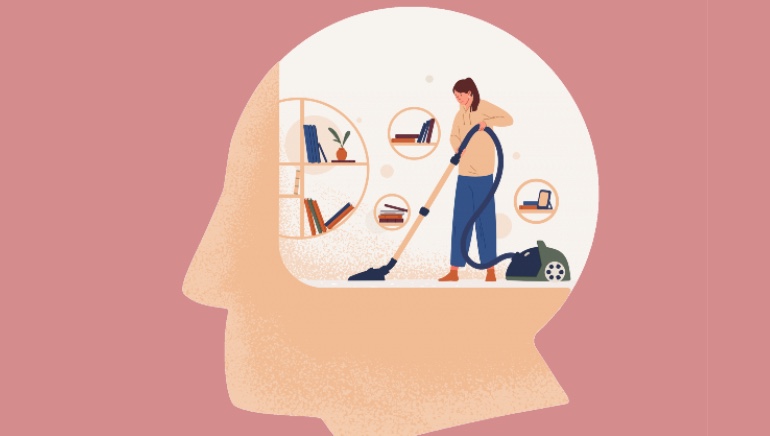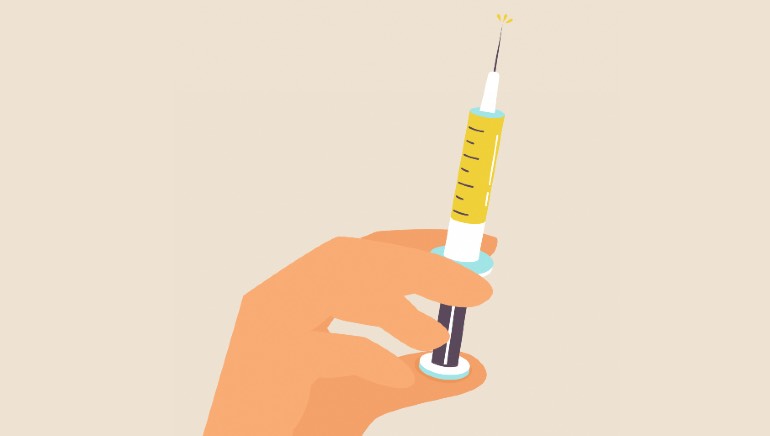
It is that time again when we prepare to bid goodbye to a year gone by and herald a new one. For some, the past year, would have been a mix of good tidings and ups and downs. However, the arrival of a new year also signals new hope and opportunities.
We hope that 2020 will bring changes for the best and ensure a bright future for us. And while work towards building our careers and personal relationships, it is also time to build better health for ourselves.
So, no matter your age–or the life cycle you’re in–follow these health tips for the New Year to ensure that the coming year brings with it optimum wellness and zero diseases.
#1: Reduce your salt intake by half
The Indian diet is high in sodium and our salt consumption is one of the biggest contributing factors for non-communicable diseases. Excessive salt over time can cause irreparable damage to the kidneys and lead to a rise in blood pressure. Reduce your salt intake as much as possible–lower the better. Add only normal amounts of salt when cooking.
Also read: Forget weight loss! Make these 5 wholesome New Year’s resolutions for a healthier you
#2: Consume a trans-fat-free diet
Eliminating or reducing trans-fat from our diets is a harm reduction strategy. Adopting this will ensure that any potential health complications such as heart problems are averted–especially in people with a family history of such issues.
#3: Try walking 500 meters in six minutes
If you can walk 500 meters in six minutes, you do not have significant underlying heart disease. This is because people without a heart problem can walk without experiencing palpitations, breathlessness, or fatigue in both short and long distances.

#4: Say no to passive smoking
Exposure to passive smoking can lead to hypertension over time. There is a need to stay away from secondhand smoke, and not just to reduce exposure–but to prevent hypertension in the future entirely.
#5: Keep your coffee intake under control
Available evidence suggests that coffee consumption does not have a major impact on our lipid profile. However, it is possible that coffee use can slight increase in blood pressure. So, hypertension patient or not–limit your coffee intake to two cups a day.
Also read: This is what drinking too much coffee can do to your body
Select Topics of your interest and let us customize your feed.
PERSONALISE NOW#6: Say no to antibiotics without a medical prescription
Antibiotics are different from all other classes of drugs in a very important way. The more a person uses them, the less effective they can become. Doctors as well as patients should be aware about and advocate judicious use of antibiotics. Over prescription and self-prescription, both, need to be checked.
#7: Keep your vitals under check
It is important to maintain your lower BP, fasting sugar, bad cholesterol, heart rate, and abdominal circumference below 80. To live above the age of 80 without a heart attack–you need to have ideal health parameters and lifestyle, and both can be remembered with this formula of 80.
#8: Eat natural
Consume natural fast food such as milk, bananas, oranges, and dry fruits. While you’re at it, avoid artificial fast foods which are high in refined carbs and bad fats. Choose vegetable soups and vegetable or fruit salads. Sprinkle fruit on breakfast cereal and select it for snacks or as a sweet note after meals. Choose your fats wisely.

#9: Learn CPR10
It is possible to revive a person within 10 minutes of death in the event of a sudden cardiac arrest. Learning CPR amounts to real voluntary work–and can be especially useful when you’re got an ailing person in the family. The CPR 10 mantra is as follows: Within 10 minutes of cardiac arrest (earlier the better) for the next 10 minutes at least, compress the centre of the chest with a speed of 100 compressions per minute (10×10). CPR 10 is easy to learn and easy to do–and you don’t need to be a doctor or be certified in this technique.
#10: Keep your house mosquito free
Ensure that you address mosquito breeding inside and outside your house every Sunday. It is important to not let water stagnate in your house and the surrounding areas. Mosquito cycle takes seven to 12 days to complete. So, if any utensil or container that stores water is cleaned properly once a week–there are no chances of mosquito breeding.
#11: Move, move, and move
Physical activity is one of the cornerstones of good health and therefore, whenever you get an opportunity–just move, move, and move. At least 30 minutes of exercise is recommended every day. This will not only improve blood circulation but also ensure that you do not gain unwanted weight.
Also read: Exercise might slash risk of seven types of cancer, says study
#12: Cut inches from your waist
The longer your waistline, the shorter your lifeline. Make sure that your waistline does not expand with age, since this can be a gateway to diseases. Exercise every day, eat healthy food, include more wholesome foods in your diet, and ensure that you keep stress at bay.
#13: Keep stress away
Stress is one of the major risk factors for several health conditions. Practice mindfulness, which includes a combination of practices, habits, thoughts, and behaviors to help you get through your daily life. Mindfulness means intentionally and actively seeking to lower the body’s response to stress.

#14: Drink adequate water
Drinking adequate water and other liquids can help in reducing the risk of various health conditions. It also helps in flushing out toxins. Water keeps all bodily systems running smoothly.
#15: Lead a parasympathetic lifestyle
The parasympathetic nervous system plays a vital role in maintaining both mental and physical health by helping the body to calm down from stress reactions that elevate blood pressure, dilate the pupils, and divert energy from other body processes to fighting or fleeing.
#16: Get flu and pneumonia vaccines
Vaccination can help prevent many health conditions including seasonal flu and pneumonia. It is therefore important to get vaccinated regularly. It is important that everyone takes vaccine for ordinary influenza to reduce severity of even conditions like swine flu.

#17: Eat a mix of seven colors and six tastes
It is recommended to include all seven colors (red, orange, yellow, green, blue/purple, white) and six tastes (sweet, sour, salty, bitter, pungent, and astringent) for a balanced diet. For long, our Vedic scriptures have also recommended this kind of diet as it helps in keeping any chronic health conditions away.
#18: Say no to alcohol
Quit drinking and if you can’t then limit alcohol consumption to less than 30 ml a day. No level of alcohol consumption can reliably be regarded as safe for some people. It is not recommended during pregnancy, if you have a personal or strong family history of alcoholism, previous hemorrhagic stroke, and hepatic or pancreatic disease.
#19 Be faithful to your partner
In cases otherwise, it is imperative to ask for a condom or pre-exposure prophylaxis.
#20: Stay positive and maintain a healthy outlook
A positive attitude can help focus better and improve overall quality of life.
In conclusion…
Make realistic goals–for instance, quitting smoking or losing weight without a doctor’s help may not be realistic, but an additional fruit serving a day is a small, manageable step toward better health. Set time commitments. Pick a date and time to start. Take this New Year as an opportunity and take this health advice to 2020.
Also read: Want to achieve all your goals and resolutions in 2020? Start by setting an intention